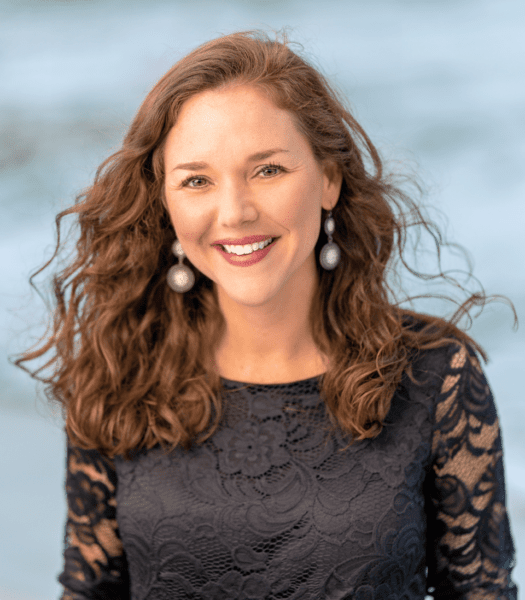/ News Posts / Summer Is Coming: Make a Musical Splash
Summer Is Coming
Make a Musical Splash
By NAfME Member Lori Schwartz Reichl
This article was originally published in the April 2018 teacher edition of In Tune Magazine.
“Continuous improvement is better than delayed perfection.” ~ Mark Twain
As the weather begins to warm, thoughts of the summer fill our minds. The joy of awakening when the sun rises, not when our alarms chime, is closer. The ability to experience a relaxing lunch that lasts more than 30 minutes is soon upon us. And, we can enjoy a week day—or more—with family and friends, without worrying about preparing substitute plans.
The summer provides educators an opportunity to refresh our minds, recharge our bodies, and regain a sense of balance. It often provides enrichment or entertainment time that isn’t often available during the academic year. It can allow for time to reflect on the past academic year’s achievements and challenges and to prepare for another musical year, even more positive and productive than the last. We may spend time during the summer choosing repertoire, repairing instruments, enhancing a course handbook, creating documents, scheduling events, or updating our websites. Many of us will work at a summer camp, conduct an ensemble, teach private lessons, or dare I say—disconnect entirely from the musical world for a brief moment. Others will register for courses to maintain our teaching certificates or to earn an additional certification, advanced degree, or salary enhancement. Whatever we plan to do, the summer can be an opportunity to improve ourselves and/or others and to refresh our music programs.
“Whatever we plan to do, the summer can be an opportunity to improve ourselves and/or others and to refresh our music programs.”
As the school year begins to wind down, encourage your students to engage in some form of musical training over the summer break. This may eliminate regression of musical knowledge, allow for improvement, and retain students who may be on the fence about continuing participation in the program. Create and distribute a list of local music camps and private instructors for students and families to view. Provide a variety of camps that include different formats, dates, locations, instructors, and prices. Allow your students and their families a chance to choose which opportunities fit their summer schedules.
If there isn’t a summer offering that you feel serves the needs of your community, create one. Start small and local. Consider creating a summer music workshop for a specific instrument or voice part. Set-up a camp where advanced musicians serve as counselors and train the less experienced musicians. Create a music ensemble that rehearses once a week throughout the summer or intensely for several hours for one full week. Discover possible indoor and outdoor venues where the ensemble can perform. Consider the school auditorium, a church, an amphitheater, a local restaurant, poolside at the community swim club, at a Fourth of July event, or so forth. Parents are more likely to register their children for a summer program when they trust the staff and instructors to keep their children safe, active, and educated.
Do you want to expand your instructional, musical, pedagogical, and/or technological skills? Attempt to find a summer program that will interest you, develop your musicianship, and/or inspire you to become an even more effective educator. (See the Summer Study section of the April 2019 issue of Teaching Music.) Search within your school system or local institutions for opportunities for professional development. There are plenty of online options, too. Such educational courses provide convenience, but often lack face-to-face interaction. If you are willing to travel and lodge, consider collegiate institutions that offer summer-only sessions. A quick online search involving summer continuing music studies provides sessions all over the United States, from The University of the Arts in/around Philadelphia to VanderCook College of Music in Chicago or the American Band College in Ashland, Oregon. Some national ensembles offer summer sessions, too, where you learn side by side with the ensemble’s musicians and its conductor. Even New York City’s Carnegie Hall offers a Music Educator Summer Workshop at a ridiculously low cost with financial aid options. Decide what type of professional development best fits your schedule, finances, aspirations, and will best inspire you. If you are willing to explore, you are destined to find a course, workshop, or program that fits your musical interest.
If you aren’t planning to enroll in formal professional development, then locate a mentor or two. Pick the brains of those colleagues you admire and hope to emulate. Talk shop. Ask questions, opinions, suggestions, and recommendations regarding these advisers’ programs, recruitment and retainment tactics, schedules, performances, or teaching styles. Ask them to share their teaching experiences and thoughts about the current and future state of music education. Or, offer to mentor a novice teacher and offer the same learning experience to him/her.
“Return to making music again, not just conducting or teaching it.”
Have you been maintaining your musicianship? (See my January article.) If you are currently doing very little, the summer may provide more time to practice. If you are doing nothing at all with your instrument, then find it, dust it off, get it repaired if necessary, and use it. Once you feel confident practicing your musical skills again, consider ways to engage with other musicians or discover opportunities for performance. Volunteer at church to sing or play your instrument. Practice duets with a colleague. Organize a chamber ensemble, such as a trio, quartet, or quintet. Join a community ensemble or local chorale. Perform in a musical as a cast member, ensemble member, or as a member in the pit orchestra. Return to making music again, not just conducting or teaching it.
If you enjoy composing, you may find additional time to write your own music or to design marching band drill. Attend a concert that you don’t have to plan, conduct, perform, or adjudicate. You may be able to actually enjoy listening to music without the stress of organization. Imagine that!
Regardless of your summer plans, be sure to refresh yourself and your music program. Make a musical splash!
About the author:
NAfME member Lori Schwartz Reichl is a music educator and author. Visit her website at makingkeychanges.com.
Lori Schwartz Reichl actively serves as an adjudicator, clinician, conductor, private instructor, speaker, and writer. Lori is the author of the series “Key Changes: Refreshing Your Music Program” published monthly for In Tune Magazine’s teacher edition where she provides resources to enhance the music classroom and rehearsal space. She also serves as a journalist for Teaching Music Magazine. Lori has worked in rural, suburban, and urban public schools and is recognized for her work with Title I schools. As an avid presenter at conferences, professional development sessions, and universities nationwide, she serves as a resource for building community, developing effective classroom management techniques and rehearsal routines, and motivating diverse learners.
Join Lori for a week-long graduate course reflecting on the ideas shared each month in this column: AMUS 605: Making Key Changes: Refresh Your Music Program, 3 credits, July 22 – 26, 2019 @ Villanova University.
Did this blog spur new ideas for your music program? Share them on Amplify! Interested in reprinting this article? Please review the reprint guidelines.
The National Association for Music Education (NAfME) provides a number of forums for the sharing of information and opinion, including blogs and postings on our website, articles and columns in our magazines and journals, and postings to our Amplify member portal. Unless specifically noted, the views expressed in these media do not necessarily represent the policy or views of the Association, its officers, or its employees.
Published Date
April 9, 2019
Category
- Careers
- Lifelong Learning
Copyright
April 9, 2019. © National Association for Music Education (NAfME.org)








